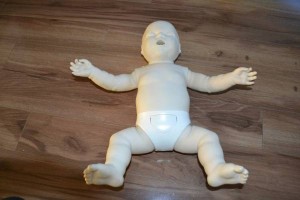It is every parent’s dream to have a healthy baby, but occasional health problems are inevitable. Whether you are a first-time parent or have plenty of experience in childcare, distinguishing mild illness and normal distemper from more-serious health concerns is often a tough task.
When to call your doctor
Usually, occasional illness is not a reason to worry for a healthy baby – but in some situations it’s best to visit the doctor. Here are signs and symptoms to watch out for:
- Loss or decreased appetite
- Mood changes (lethargy, unusually difficult to rouse or extremely irritable)
- Tender umbilical area or penis
- Loose or watery stools, especially longer than 24 hours
- Vomiting, forceful or accompanied by fever or diarrhoea for more than 12 hours
- Dehydration (soft spot on baby’s head seems to sink, doesn’t wet a diaper for six hours or longer, or baby has dry mouth or cries without tears)
- Constipation
- Colds that lasts longer than two weeks, accompanied by severe coughing, or interferes with normal breathing
- Ear problems or baby does not respond to sound
- Rash that covers a large area of the body or develops suddenly
- Eye discharge
- High fever
Although mild fever is common among very young children, watch out for high fever – temperature higher than 38.9 C (102 F) – that lasts for more than a day and is accompanied by other signs and symptoms, such as diarrhoea, cough or cold.
You’ll never go wrong if you trust your mother instincts. If your gut feeling tells you to contact the doctor, do so. After hours, you may try calling a 24-hour medical assistance offered by your pediatrician’s clinic, office or health insurance provider.
When to seek emergency care
Here are some emergency situations that require you to call 911 or your local emergency services.
- Trouble breathing
- Profuse bleeding
- Seizures
- Poisoning
- Head injuries
- Loss of consciousness
- Large burns or cuts
- Head injuries
- Neck stiffness
- Bluish, purplish or greyish skin or lips
- Bloody urine output or diarrhoea
- Persistent diarrhoea
Prepare for emergencies
Parents are recommended to be always ready to handle emergencies. Ask your doctor during your appointment about what to do if the baby develops acute, emergency health problems. Usually, paediatricians provide a module about how to manage common health conditions in infants and children. Read and understand your childcare module so you know what to do. Still, it is best to learn basic first aid for children and infants, including infant CPR. Make sure first aid supply kits are readily available to you and keep emergency phone numbers an accessible location.
Being prepared can significantly help improve the outcome of your baby. It can even save the life of your baby.
More Training
To learn more about providing first aid and recognizing emergencies scenarios while caring for your infant enrol in one of the following workplace approved programs:
- Standard First Aid – Enrol here.
- Emergency First Aid – Enrol here.
Related Video
FACT CHECK
https://medlineplus.gov/ency/patientinstructions/000319.htm
https://kidshealth.org/en/parents/guide-parents.html
https://medlineplus.gov/infantandnewborncare.html


